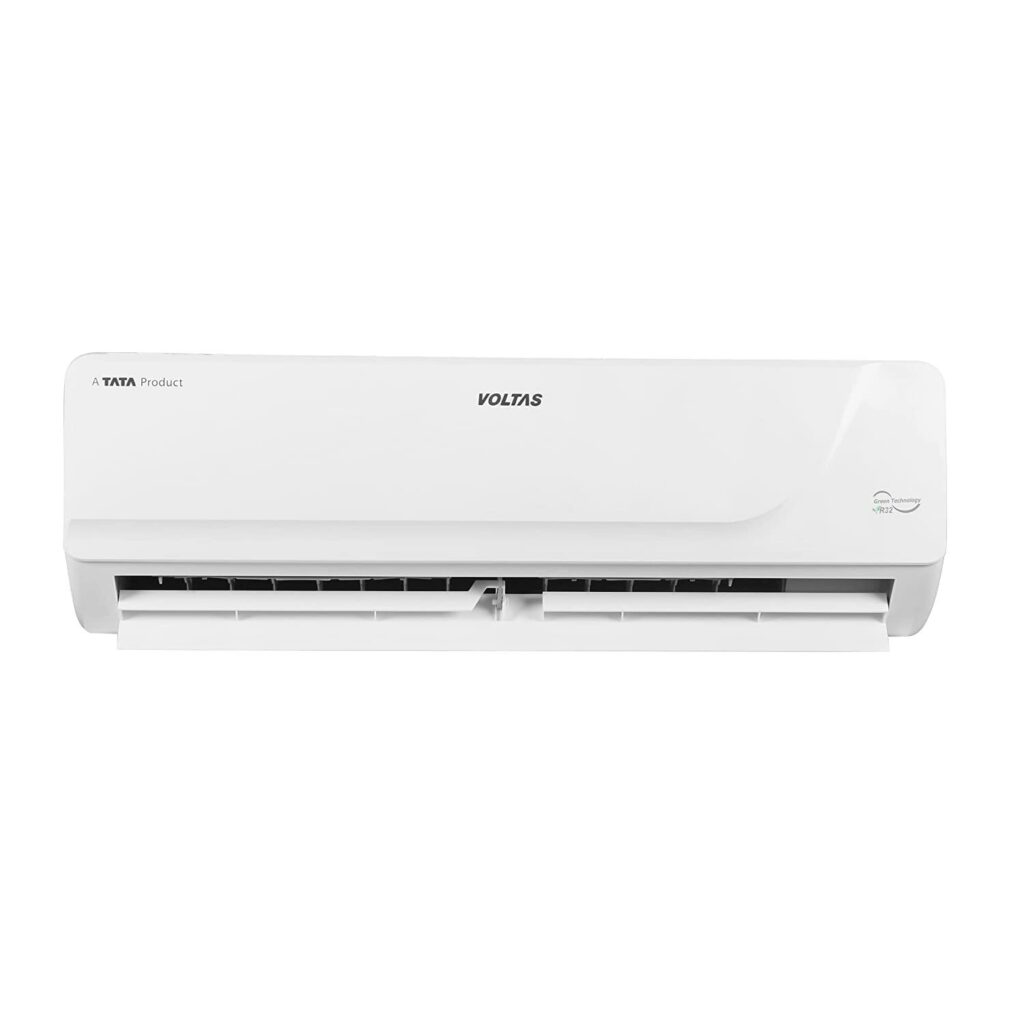In the scorching heat of summer or the muggy days of monsoon, air conditioners come to our rescue, providing cool comfort and making our living spaces more bearable. The modern air conditioner is a marvel of engineering, offering not only cooling but also heating, air purification, and energy efficiency. In this blog, we’ll delve into the world of air conditioners, exploring their types, features, benefits, and tips for making the most of these essential appliances.

Table of Contents
Types of Air Conditioners
Air conditioners come in various types, each suited to specific needs and spaces:
1. Window Air Conditioners:
These units are installed in windows or openings in walls. They’re ideal for single rooms and are relatively easy to install.
2. Split Air Conditioners
Split Air Conditioners, often known as Split ACs, comprise two components: an indoor unit and an outdoor compressor.. They’re efficient, quiet, and can cool larger areas.
3. Central Air Conditioning
Central Air Conditioning: Typically used in larger buildings and homes, central AC systems circulate cool air through a network of ducts.
4. Portable Air Conditioners
Portable Air Conditioners: Portable AC units can be moved from room to room. They’re suitable for apartments or homes without window units.
Features and Efficiency
1. Energy Efficiency
Seek out air conditioning units boasting a high Energy Efficiency Ratio (EER) or Seasonal Energy Efficiency Ratio (SEER) to conserve energy and lower your utility expenses.
2.Inverter Technology
Inverter ACs adjust compressor speed to maintain the desired temperature, improving efficiency and comfort.
3. Smart Features
Many modern ACs are equipped with smart technology, allowing you to control them remotely via a smartphone app or voice commands.
Benefits of Air Conditioners
1. Cooling Comfort
The primary purpose of an AC is to provide relief from hot and humid weather, making your indoor spaces more comfortable.
2. Improved Air Quality
Some AC units have built-in air purifiers and filters that remove dust, allergens, and pollutants, enhancing indoor air quality.
3. Humidity Control
Air conditioners also dehumidify the air, reducing excess moisture and preventing mold growth.
4. Energy Efficiency
Efficient ACs can help save on electricity bills by cooling your home without excessive energy consumption.
Tips for Efficient Cooling
Regular Maintenance
Keep your AC in top condition by cleaning or replacing filters, checking refrigerant levels, and ensuring proper insulation.
Temperature Control
Set your thermostat to an optimal and comfortable temperature to avoid overworking the AC.
Sealing Leaks
Ensure doors and windows are properly sealed to prevent cool air from escaping.
Use Fans Wisely
Ceiling fans can help distribute cool air, allowing you to set the thermostat a few degrees higher without sacrificing comfort.
Environmental Considerations
R-32 Refrigerant
Many modern ACs use R-32 refrigerant, which has a lower global warming potential (GWP) compared to older refrigerants like R-22.
Energy Star Certification
Look for AC units with the Energy Star label, indicating they meet energy efficiency standards.
Proper Sizing
Choosing the right-sized AC unit for your space is crucial. An undersized unit will struggle to cool, while an oversized one can lead to temperature fluctuations and excessive energy consumption.
Air conditioners have become an integral part of modern living, providing much-needed relief from extreme temperatures and improving indoor air quality. With advancements in technology and increased energy efficiency, today’s AC units offer both comfort and sustainability. By selecting the right type, maintaining it properly, and using it efficiently, you can enjoy cool comfort while minimizing your environmental impact and energy costs.
Read More. Check out top new Deal in Air Coolers in 2023
-
Different types of air conditioners
Air conditioners come in several types, including:
Window Air Conditioners
Split Air Conditioners
Central Air Conditioning
Portable Air Conditioners -
What is the ideal use case for window air conditioners?
Window air conditioners are ideal for cooling single rooms and are relatively easy to install in windows or wall openings.
-
Can you explain the components of split air conditioners?
Split Air Conditioners consist of two main components: an indoor unit and an outdoor compressor. The indoor unit is typically installed inside the room, while the outdoor compressor is placed outside. They work together to cool the room efficiently.
-
When should I consider central air conditioning for my home?
Central air conditioning is suitable for larger homes or buildings. It uses a network of ducts to distribute cool air throughout the space, providing consistent cooling.
-
Are portable air conditioners easy to move from room to room?
Yes, portable air conditioners are designed for easy mobility and can be moved from one room to another, making them a flexible cooling solution.
-
What is the significance of Energy Efficiency Ratio (EER) and Seasonal Energy Efficiency Ratio (SEER) in air conditioners?
EER and SEER are measures of energy efficiency. Higher EER or SEER ratings indicate that the air conditioner is more energy-efficient, which can result in lower utility bills.
-
How does inverter technology in air conditioners benefit users?
Inverter technology allows air conditioners to adjust compressor speed to maintain the desired temperature efficiently.
-
What are the advantages of air conditioners beyond cooling?
Air conditioners not only provide cooling comfort but also offer benefits such as improved indoor air quality through built-in air purifiers and humidity control.
-
How can I ensure my air conditioner operates efficiently?
To maximize efficiency, perform regular maintenance, set the thermostat to an optimal temperature, seal any leaks around doors and windows, and use ceiling fans wisely to distribute cool air effectively.
-
Are there any environmental considerations when choosing an air conditioner?
Yes, consider air conditioners that use environmentally friendly refrigerants like R-32, which have a lower global warming potential (GWP). Additionally, look for Energy Star certification to ensure energy efficiency and reduced environmental impact.
-
What is the importance of proper sizing when selecting an air conditioner?
Choosing the right-sized air conditioner is crucial. An undersized unit will struggle to cool the space, while an oversized one can lead to inefficiency, temperature fluctuations, and higher energy consumption.
